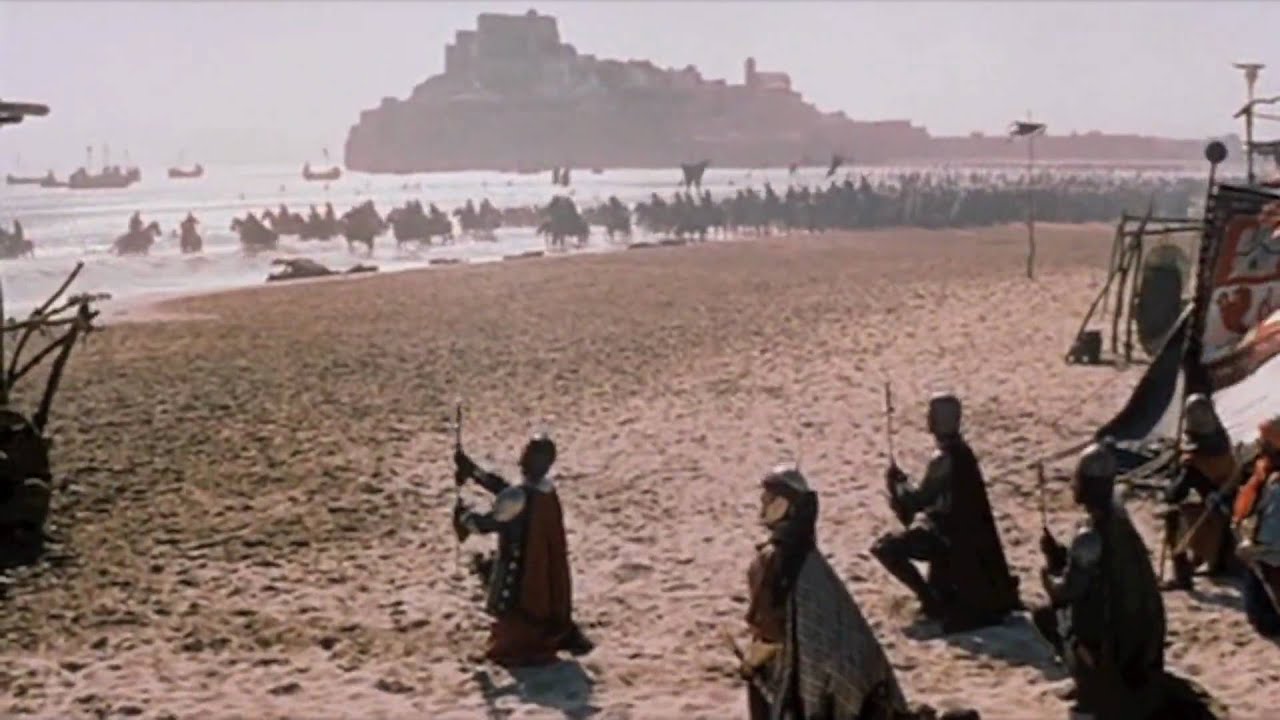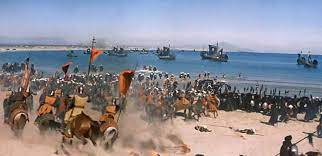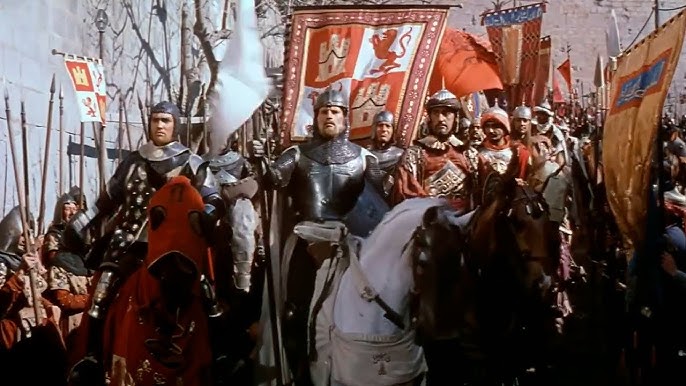El Cid (1961)

A Cinematic Epic: A Review of El Cid (1961)
El Cid (1961) stands as one of the most ambitious historical epics ever brought to the silver screen. Directed by Anthony Mann and starring Charlton Heston and Sophia Loren, the film tells the tale of Rodrigo Díaz de Vivar, better known as El Cid, a legendary Spanish knight who became a symbol of unity and heroism during the Reconquista. With its sweeping landscapes, grand battle sequences, and a powerful central story, El Cid captures the grandeur of a bygone era while exploring timeless themes of honor, love, and sacrifice.
Plot Overview
Set in 11th-century Spain, the film follows Rodrigo (Charlton Heston), a noble knight who earns the title of “El Cid” after sparing the lives of Moorish leaders during a siege. His actions, seen as an act of chivalry and diplomacy, bring him both admirers and enemies. Rodrigo’s commitment to uniting Christians and Moors against a common enemy, the North African invaders led by Emir Ben Yussuf, becomes the central theme of his journey.
Complicating matters is Rodrigo’s love for Jimena (Sophia Loren), a woman torn between her devotion to him and her duty to avenge her father, whom Rodrigo kills in a duel. The film chronicles Rodrigo’s rise from disgraced knight to a revered leader, culminating in a climactic battle for Valencia, where his legacy as a unifier and hero is solidified.
Charlton Heston as El Cid
Charlton Heston’s commanding presence and larger-than-life persona make him a natural fit for the role of El Cid. His portrayal of Rodrigo Díaz de Vivar combines stoic heroism with deep emotional complexity, allowing audiences to connect with both his ideals and his personal struggles. Heston’s ability to convey honor and conviction makes Rodrigo a compelling figure whose journey resonates beyond the historical setting.
Sophia Loren’s Grace and Strength
Sophia Loren’s portrayal of Jimena adds emotional depth to the film. Her character’s internal conflict—caught between love and vengeance—is portrayed with grace and intensity. Loren’s chemistry with Heston is palpable, though their relationship is often marked by tension and tragedy. Jimena’s evolution from a grieving daughter to a devoted partner mirrors Rodrigo’s own growth, making her an integral part of the story’s emotional core.
Epic Scale and Cinematic Grandeur
Anthony Mann’s direction brings the grandeur of medieval Spain to life with breathtaking visuals and meticulously staged battle scenes. The film’s sweeping cinematography, captured by Robert Krasker, showcases the stark beauty of the Spanish landscapes, from the rolling plains to the fortified city of Valencia. The large-scale battles, featuring thousands of extras and intricate choreography, remain a hallmark of the epic genre.
Miklos Rozsa’s majestic score adds another layer of grandeur, blending haunting melodies with triumphant fanfares that perfectly complement the film’s tone. The music elevates key moments, from intimate character interactions to the climactic siege of Valencia, enhancing the emotional impact of the story.
Themes of Honor and Unity
At its heart, El Cid is a story about the power of unity and the importance of standing by one’s principles. Rodrigo’s unwavering commitment to peace and justice—even when it comes at great personal cost—serves as a timeless reminder of the value of integrity. The film’s exploration of the coexistence between Christians and Moors is particularly poignant, emphasizing the possibility of collaboration in the face of shared threats.
Criticism and Limitations
While El Cid is undoubtedly a cinematic achievement, it is not without its flaws. The film’s pacing, particularly in its second act, can feel sluggish, and some of the dialogue leans heavily into melodrama. Additionally, the historical accuracy of the events depicted has been questioned, though this is common in films of the epic genre, which prioritize storytelling over strict adherence to fact.
The on-screen tension between Heston and Loren reportedly mirrored real-life disputes during production, though this tension arguably adds authenticity to their fraught relationship on screen.
Legacy and Influence
El Cid remains a classic of the historical epic genre, standing alongside films like Ben-Hur (1959) and Lawrence of Arabia (1962) in its ambition and execution. Its portrayal of a legendary figure whose ideals transcend his time continues to inspire audiences. The film’s emphasis on unity and cooperation remains particularly relevant in today’s divided world.
Conclusion
With its breathtaking visuals, powerful performances, and timeless themes, El Cid (1961) is a cinematic triumph that captures the essence of heroism and sacrifice. Charlton Heston’s portrayal of Rodrigo Díaz de Vivar and Sophia Loren’s nuanced performance as Jimena bring depth and humanity to this sweeping epic. While the film is not without its imperfections, its enduring legacy as a tale of honor and unity ensures its place as one of the greatest historical dramas ever made.
Whether you’re a fan of epic cinema or new to the genre, El Cid is a must-watch that continues to captivate audiences with its grandeur and heart.